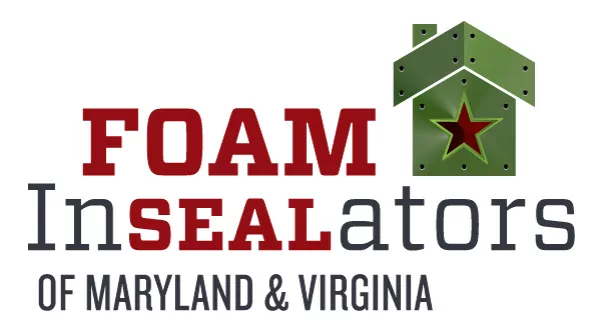Updated March 2024
Are you a resident of Virginia or Maryland? If so, ensuring your attic insulation complies with local building codes isn’t just important—it’s essential for maximizing your home’s energy efficiency, comfort, and safety. Yet, wading through the complexities of building codes can feel like traversing a maze. Fear not! This blog post is your guiding light, shedding clarity on the specific attic insulation requirements for both states, empowering you to make confident and informed decisions for your home.
Navigating Attic Insulation Requirements in Virginia
Virginia adheres to the 2021 International Residential Code (IRC) with amendments by the Virginia Uniform Statewide Building Code (USBC). The R-value requirement for insulation varies depending on climate zone, attic type, and fuel type for heating. Here’s a breakdown of each climate zone and its requirements:
- Northern Virginia (Zone 5): vented attics require R-49 and unvented attics need R-60.
- Central Virginia (Zone 4): vented attics require R-49 and unvented attics need R-54.
- Southern Virginia (Zone 3): vented attics require R-38 and unvented attics need R-44.
Exceptions exist for existing homes, that are generally not required to meet current code if their insulation levels are already R-30 or higher. However, new construction and major renovations must comply with updated codes, impacting various home types differently. This means that homes with cathedral ceilings or specific architecture for example might facilitate additional considerations.
Check out resources like the Virginia Department of Professional and Occupational Regulation (DPOR) and the Virginia Department of Housing and Community Development (DHCD) for even more invaluable guidance.
Deciphering Attic Insulation Standards in Maryland
Maryland follows the 2021 International Energy Conservation Code (IECC) with some amendments. Unlike Virginia, Maryland has a uniform R-value requirement of R-49 for all attics across all its climate zones.
Like Virginia, exceptions exist for existing homes, typically not requiring upgrades unless major structural changes occur. New construction and major renovations must adhere to updated codes, with potential variations based on home type and features.
Additional requirements may include air sealing measures, but blower door testing is not a statewide mandate for attic insulation upgrades. Take note that specific localities or projects might have different requirements.
Upgrading your insulation beyond code requirements is an ideal way to enjoy additional benefits for you and your family, including increased comfort, lower energy bills, and a smaller carbon footprint. Take the time to consult with a qualified professional to receive precise code interpretations and insulation recommendations for your specific home.
Check out the Maryland Energy Administration (MEA) and the Maryland Department of Labor and Licensing (DLLR) for additional information. Note that these are summaries and specific details may vary depending on your locality and individual circumstances.
Stay Ahead of the Curve: Keeping Up to Date with Attic Insulation Standards

For Virginia homeowners: Visit the Virginia Uniform Statewide Building Code website and the DPOR website for updates and amendments.
For Maryland residents: Visit the Maryland Energy Administration and DLLR websites for ongoing information and potential code revisions.
National resources: Check out Energy Star, Department of Energy, and Insulation Institute for even more insulation information.
Investing in Attic Insulation for a Cozier, Greener Home
Investing in proper attic insulation not only ensures compliance with building codes but also enhances your home’s energy efficiency, comfort, and overall home health. By understanding and adhering to current codes, incorporating insulation materials, and improving conditioned space, you can unlock year-round benefits, and relax knowing your home is compliant in your home state, whether Virginia or Maryland.
Consult Foam InSEALators for a personalized assessment and make the most of your home’s insulation potential. We offer a variety of insulating options for your home and attic including spray foam insulation that insulates and air seals in one easy step. Invest in your home’s comfort, health, and efficiency today! Our team of insulation experts is ready to answer your questions and provide solutions for your insulating needs. Contact us today for your free estimate.

